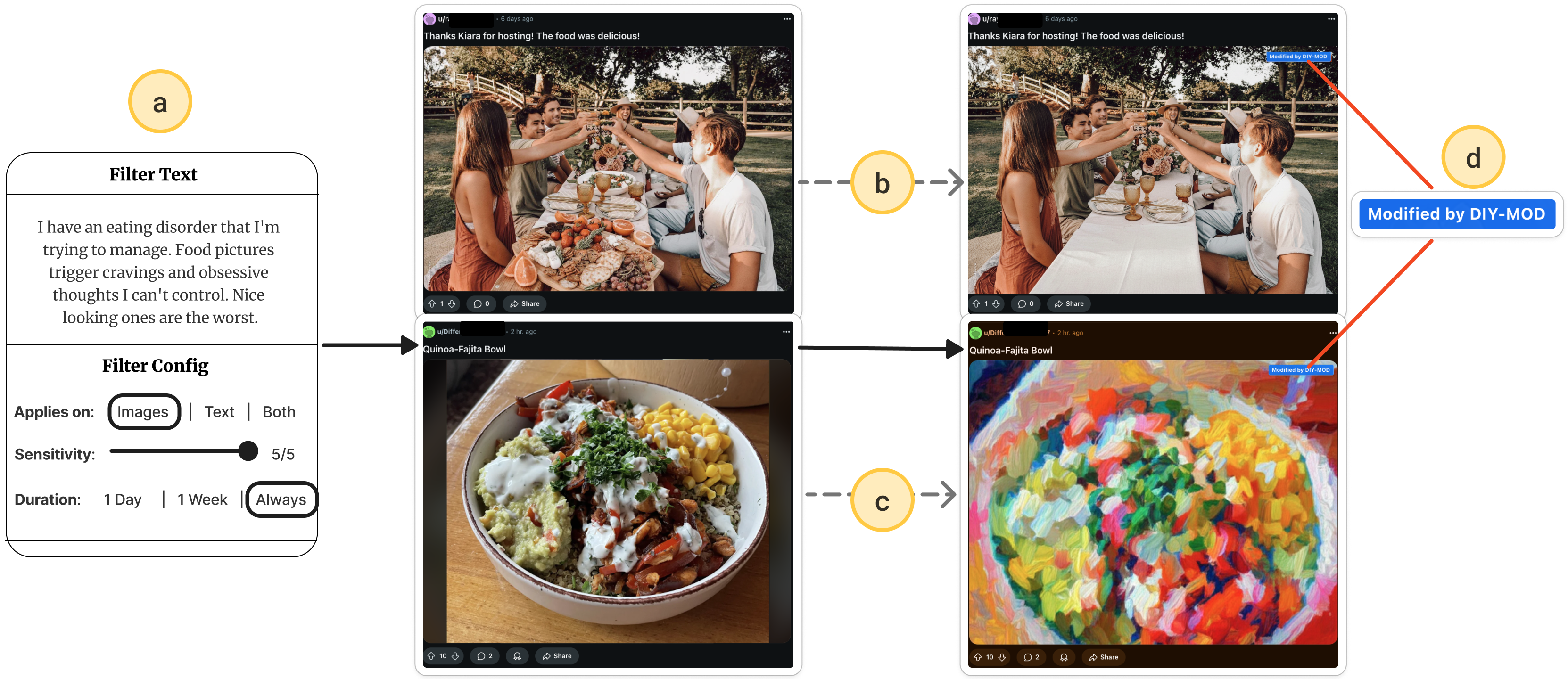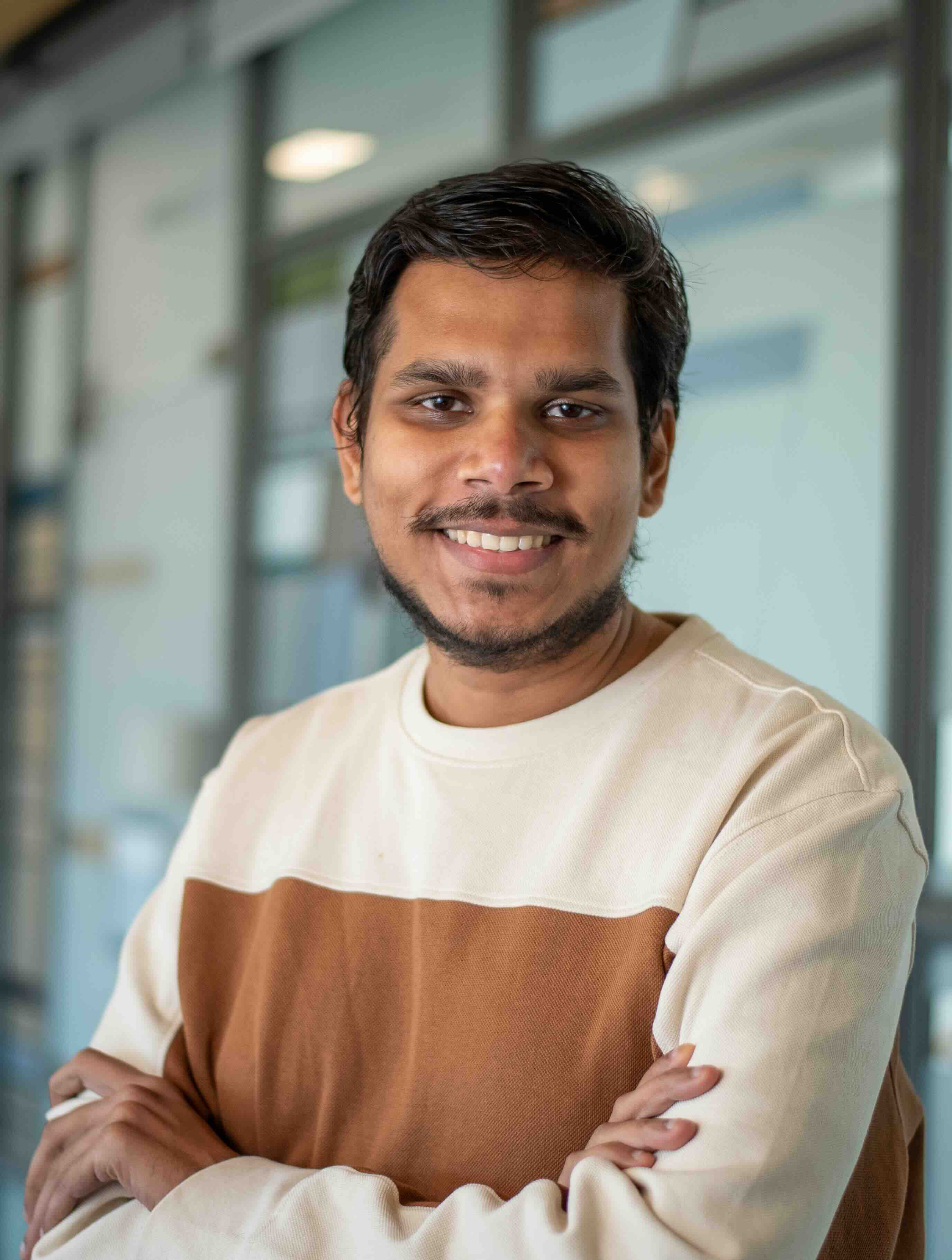Social Computing × AI × Well-being
I am a PhD student at the UMich working with Farnaz Jahanbakhsh. I build AI-powered social computing systems that give users control over their digital experiences and well-being.
When I encounter a problem, I love to design and code solutions (see here, also here).
Research
Scalable Gen-AI Systems for Pro-social Outcome
Platforms define harm universally and respond with suppression. What if users could define harm themselves? We built DIY-MOD, a system with optimized LVLM pipelines that transforms user-defined harmful elements within content in real-time instead of removing the entire post. (CHI 2026, under review)

Current work: Broadening the scope of AI-powered user safety and autonomy.
- Agentic AI for Online Safety: How can autonomous systems protect users across the entire web, beyond specific platforms?
- On-Device Intelligence with WebGPU: Smaller task-specific models (like this) could be augmented in the pipeline to make this pipeline more accessible. Can we tap into that?
Governance for User-Centered Platforms
I think systems alone don't create change, we also need regulatory frameworks that enable user agency. My Consumer Moderation Rights framework (FAccT 2026, in prep) connects user autonomy to existing consumer protection laws, providing actionable pathways for platform accountability.
Selected Publications
What If Moderation Didn't Mean Suppression? A Case for Personalized Content Transformation
Rayhan Rashed, Farnaz Jahanbakhsh | CHI 2026 (Under Review)
📄 Paper | Slides | Code
Best Application of AI 🏆, Michigan AI Symposium 2025
Best Poster 🏆, Michigan HCAI 2025
Consumer Moderation Rights: Fixing Social-Media "Defective Design"
Rayhan Rashed | FAccT 2026 (Manuscript Under Prep)
📄 Paper
Dakter Bari: Healthcare Services for Extremely Impoverished People
Tensions between Uber Owners and Drivers in Bangladesh
SM Taiabul Haque, Rayhan Rashed et al. | ACM CSCW 2021
📄 Paper
See the complete list on my Google Scholar.
Background
Education
BS+MS in CSE, from BUET, Bangladesh.
Received Prime Minister's Award for Best MS Research in ICT 🏆🏆
Industry
Research Engineer, National Center for Artificial Intelligence (NCAI) — Worked in developing KALEEM, LLM-powered personalized education platform with virtual tutors.
Prior Research
During my undergrad, I extensively studied (CSCW 2021, COMPASS 2021) and built (CSCW 2021) stakeholder-within-loop systems for social-good.
Beyond Research
I’m a husband 👨❤️👩 and Chelsea fan  !
!

